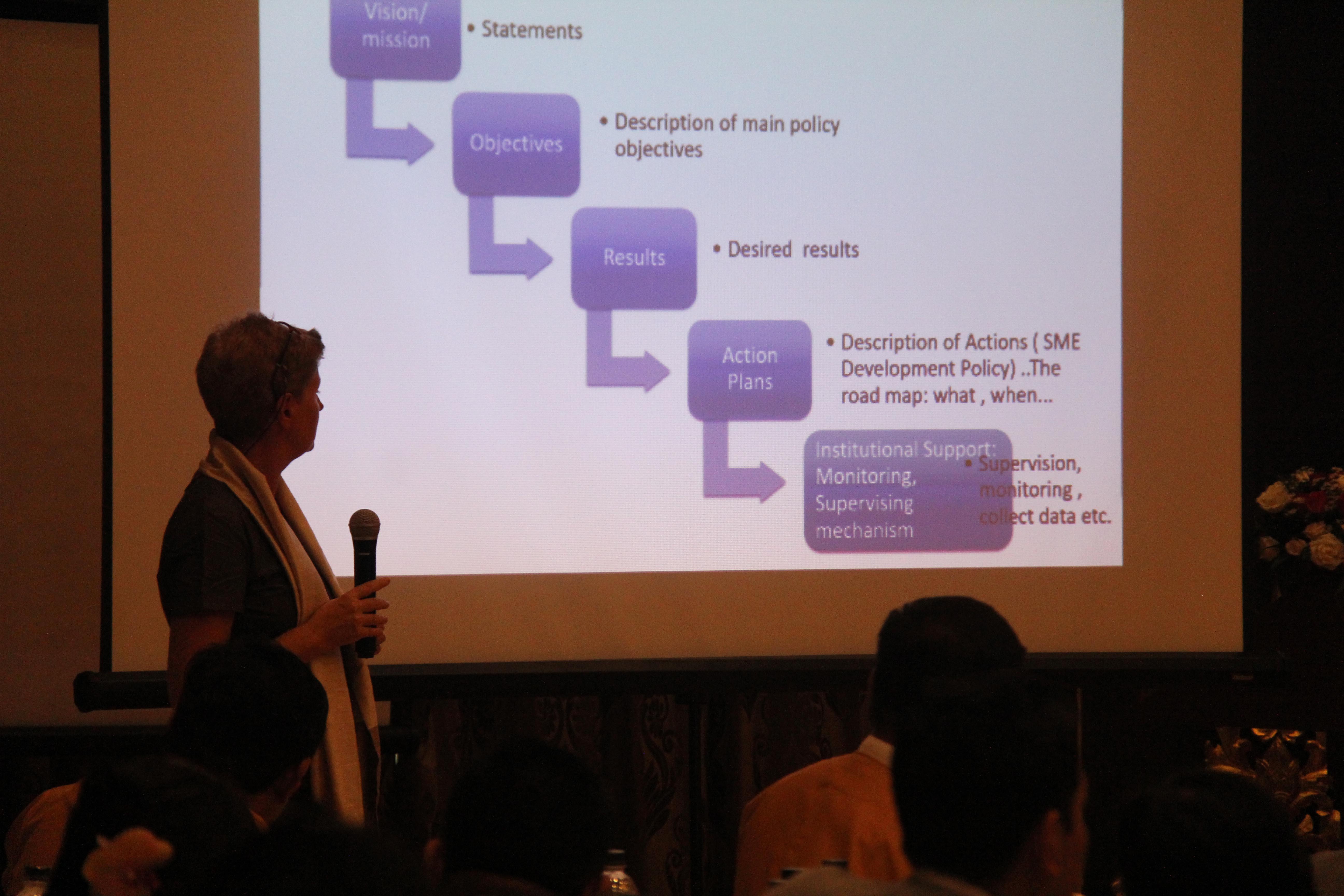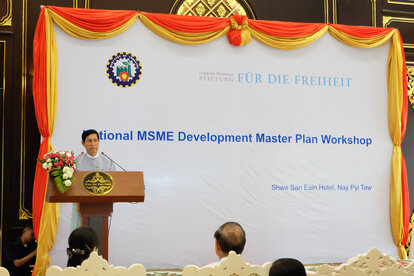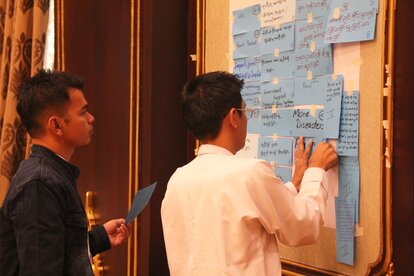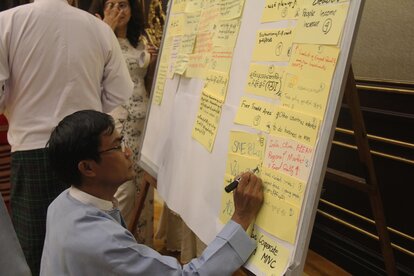MSME Master Plan – the Future of Myanmar’s Economic Growth

“Not only in Myanmar, but also in Germany it is not the renowned MNC’s but the SME’s, which are the backbone of the economy”, Ms. Jella Fink pointed out in her opening remarksat the workshop.
In a similar vein, H.E Khin Maung Cho, the Minister of Ministry of Industry, stated the importance of SME’s for Myanmar’s prosperity. He did not only welcome the drafting of the national MSME plan but much more so urged that action and innovation must follow in order to ensure MSME’s can unfold their full potential in Myanmar.

The two-day workshop on the national MSME development master plan was held in Nay Pyi Taw on March 30th –31th, 2018. It was jointly organized by FNF Myanmar and the Ministry of Industry, welcoming over 120 participants from from private and public sectors.
Daw Aye Aye Win, the Director General of the Industrial Inspection and Supervisory Department, opened the workshop with an overview of the previously developed “Mission & Vision for Myanmar’s MSME Development” and joined the workshop’s group discussions.

What was most discussed in the workshop?
On the first day of the workshop, Ms. Jolanda Jonkhart, an international expert, who has previously worked for Malaysia’s SME master plan, led the workshop and guided the participants through the necessary stages for developing such a masterplan.
Throughout the workshop, the participants were then given opportunities to discuss their problems and struggles developing SMEs in different sectors. During the afternoon-session of Day 1, a SWOT analysis was conducted. The participants were formed into 11 groups and discussed strengths, weaknesses, opportunities and threats in developing SMEs in Myanmar.
“In my opinion, this workshop is very good. I found many ways to develop SMEs from discussing strengths, weaknesses, opportunities and threats in my region. I am currently working for SME department in Ayeyarwady Region. And I think this workshop is a successful one,” said U Soe Naing Htoo, the assistant director of the SME Department in Ayeyarwady Region.
On the second day of the workshop, the participants discussed in newly formed groups how to address the eleven most important aspects, which have been deduced from the SWOT Analysis of Day 1, namely: information, business practice, environment and natural resources, cooperation, finance, education, infrastructure, innovation and technology, market(competition), policies/government and institutional issues. Using action sheets, necessary steps and responsibilities have been noted down following the table’s group discussions:“In my group, we discussed about standardization of SME products. We included items about product standards, and we discussed which department should lead for product standards,” U Soe Naing Htoo added.
The international expert, Ms. Jolanda Jonkhart said “The discussion centered around the main challenges SMEs face today in Myanmar. The participants provided valuable feedbacks on how things can be addressed and resolved. Solutions and actions were proposed for short, medium and long term. The SME Masterplan will be drafted based on these discussions.”

What‘s next after the workshop?
“We will work together with the international expert to prepare the upcoming validation workshop, which will be based on the inputs we received from the Nay Pyi Taw workshop. We will then continue to set possible action plans, quick wins, and timelines of action to achieve these intended targets and M & E frameworks for MSMEs development,” U Min Maung Maung Myo, FNF Myanmar’s Programme Manager for Economic Freedom explained.
Previously, FNF Myanmar has organized similar workshops in Chin, Magway and Ayeyarwaddy jointly with the Ministry of Industry. The results of those workshops were turned into roadmaps for these state and regions. In Chin state the implementation has already led to positive results.
About Friedrich Naumann Foundation
The Friedrich Naumann Foundation for Freedom is the foundation for liberal politics in the Federal Republic of Germany. It aims to promote the goal of making the principle of freedom valid for the dignity of all people and in all areas of society, both in Germany and abroad. With the safeguarding and the development of its statutory projects (civic education and dialogue, sponsorship of the talented, research and political consultation, archive-work), the Friedrich Naumann Foundation wants to contribute to shaping the future.
The Foundation is currently working together with governmental institutions, parliamentarians, judges, lawyers, and civil society to support strengthening democratic institutions, improving the economic viability of small and medium enterprises through policy reform and fair competition, strengthening legal frameworks to improve rule of law, tackling corruption and enhancing the capacity of relevant stakeholders.